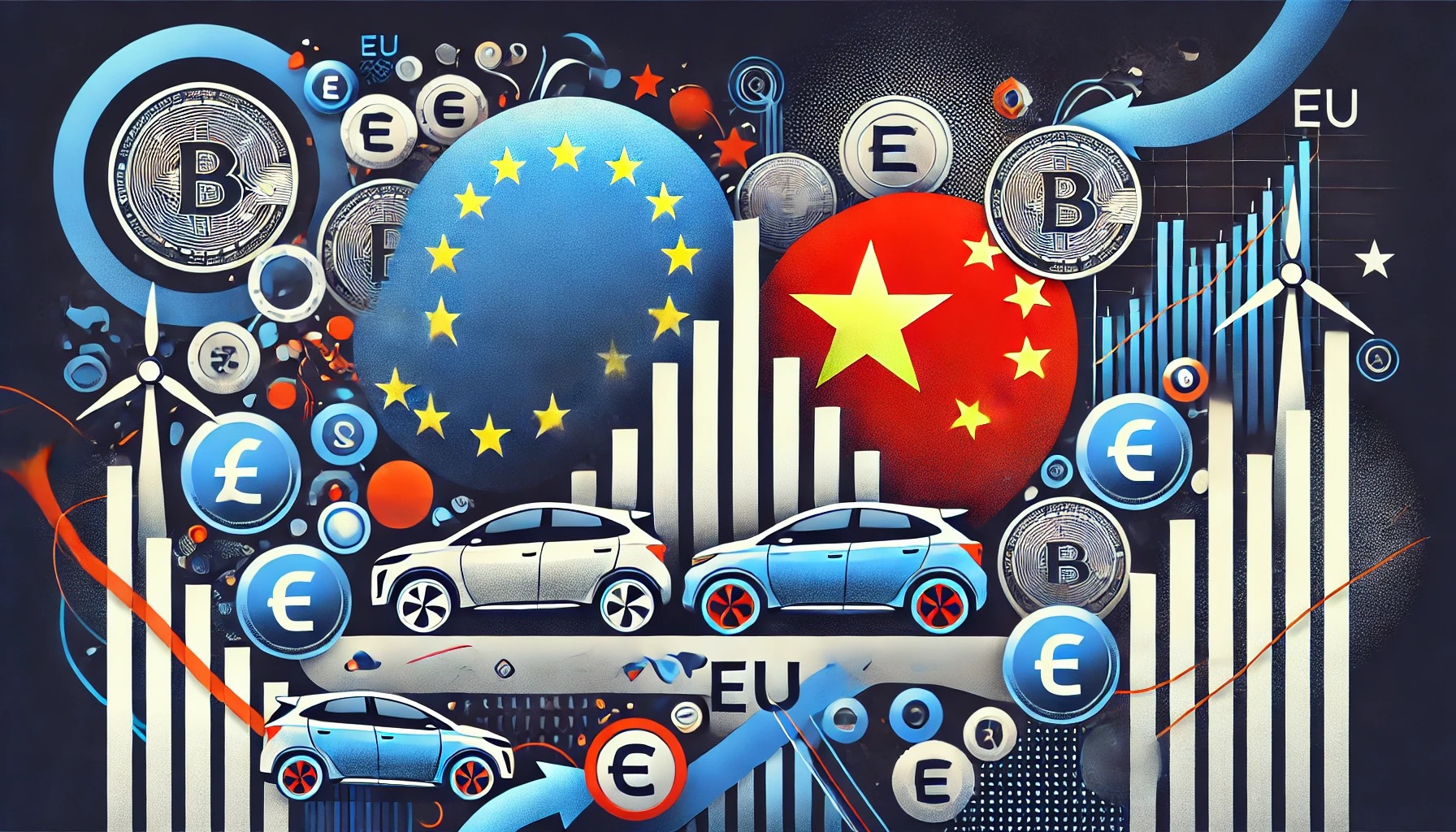EU Tariffs on Chinese EVs: Will the Vote Bring Up to 45% Duties?
European Union (EU) members are set for a pivotal vote on Friday regarding imposing tariffs of up to 45% on imports of Chinese-made electric vehicles (EVs). This is one of the EU's most high-profile trade cases, and it could trigger retaliation from Beijing.
The European Commission, responsible for the EU's trade policy, has proposed these final duties to counter China's unfair subsidies. This move comes after a year-long anti-subsidy investigation into the matter.
The Voting Process and Tariff Approval
EU tariffs on Chinese EVs can be imposed for five years under EU rules unless a "qualified majority" — 15 countries representing 65% of the EU population — votes against the plan. In this vote, a lack of a qualified majority either way will allow the EU executive to proceed with adopting the tariffs. Alternatively, the Commission could submit a revised proposal to seek broader support.
France, Greece, Italy, and Poland have announced they will vote in favor of the proposed tariffs, as reported by Reuters. This collective support is sufficient to prevent a majority block against the tariffs.
Germany and Automakers Push Back
Germany, the EU’s largest economy and a key player in car manufacturing, is poised to vote against the tariffs, according to sources. German automakers, who rely on China for around a third of their sales, argue that such tariffs are counterproductive. Volkswagen (ETR: VOWG_p), a major German car manufacturer, openly stated that tariffs on Chinese EVs are "the wrong approach."
Alternative Approaches to EU Tariffs on Chinese EVs
Spain, initially a supporter of tariffs, seems to have reconsidered its stance. Spain's Economy Minister has urged the European Commission to maintain open negotiations beyond the binding vote, aiming to reach a mutual agreement on EV prices and possibly the relocation of battery production to the EU. This sentiment was echoed by Spanish Prime Minister Pedro Sanchez during a visit to China, suggesting a potential shift in the EU’s stance on tariffs.
Concerns Over Beijing's Potential Response
The possibility of imposing EU tariffs on Chinese EVs has caused apprehension among some EU members. China's response has already included launching investigations into imports of European products like brandy, dairy, and pork. Over the last five years, the EU's approach to Beijing has become more assertive, with China being viewed as a potential partner, but also as a competitor and systemic rival.
Impact of China's EV Production Capacity
The European Commission has highlighted China's excess EV production capacity, which stands at around 3 million units annually — a volume double the size of the EU market. With tariffs as high as 100% in markets like the United States and Canada, Europe has become an attractive market for Chinese EV exports.
Ongoing Negotiations and Tariff Ranges
The EU has indicated a willingness to continue discussions with China to find alternatives to tariffs. One proposed solution is establishing a minimum import price based on criteria such as range, battery performance, and vehicle type. The current range of tariffs varies, from 7.8% for Tesla (NASDAQ: TSLA) to 35.3% for companies like SAIC that did not cooperate with the EU investigation. These tariffs would be in addition to the EU's standard 10% import duty for cars.



 RBI Holds Repo Rate at 5.25% as India’s Growth Outlook Strengthens After U.S. Trade Deal
RBI Holds Repo Rate at 5.25% as India’s Growth Outlook Strengthens After U.S. Trade Deal  South Korea Assures U.S. on Trade Deal Commitments Amid Tariff Concerns
South Korea Assures U.S. on Trade Deal Commitments Amid Tariff Concerns  Dollar Near Two-Week High as Stock Rout, AI Concerns and Global Events Drive Market Volatility
Dollar Near Two-Week High as Stock Rout, AI Concerns and Global Events Drive Market Volatility  Vietnam’s Trade Surplus With US Jumps as Exports Surge and China Imports Hit Record
Vietnam’s Trade Surplus With US Jumps as Exports Surge and China Imports Hit Record  Gold Prices Slide Below $5,000 as Strong Dollar and Central Bank Outlook Weigh on Metals
Gold Prices Slide Below $5,000 as Strong Dollar and Central Bank Outlook Weigh on Metals  Silver Prices Plunge in Asian Trade as Dollar Strength Triggers Fresh Precious Metals Sell-Off
Silver Prices Plunge in Asian Trade as Dollar Strength Triggers Fresh Precious Metals Sell-Off  Trump Lifts 25% Tariff on Indian Goods in Strategic U.S.–India Trade and Energy Deal
Trump Lifts 25% Tariff on Indian Goods in Strategic U.S.–India Trade and Energy Deal  Russian Stocks End Mixed as MOEX Index Closes Flat Amid Commodity Strength
Russian Stocks End Mixed as MOEX Index Closes Flat Amid Commodity Strength  Trump Endorses Japan’s Sanae Takaichi Ahead of Crucial Election Amid Market and China Tensions
Trump Endorses Japan’s Sanae Takaichi Ahead of Crucial Election Amid Market and China Tensions  China Extends Gold Buying Streak as Reserves Surge Despite Volatile Prices
China Extends Gold Buying Streak as Reserves Surge Despite Volatile Prices  Japanese Pharmaceutical Stocks Slide as TrumpRx.gov Launch Sparks Market Concerns
Japanese Pharmaceutical Stocks Slide as TrumpRx.gov Launch Sparks Market Concerns  U.S. Stock Futures Slide as Tech Rout Deepens on Amazon Capex Shock
U.S. Stock Futures Slide as Tech Rout Deepens on Amazon Capex Shock  Thailand Inflation Remains Negative for 10th Straight Month in January
Thailand Inflation Remains Negative for 10th Straight Month in January  Dow Hits 50,000 as U.S. Stocks Stage Strong Rebound Amid AI Volatility
Dow Hits 50,000 as U.S. Stocks Stage Strong Rebound Amid AI Volatility  Trump’s Inflation Claims Clash With Voters’ Cost-of-Living Reality
Trump’s Inflation Claims Clash With Voters’ Cost-of-Living Reality  U.S.-India Trade Framework Signals Major Shift in Tariffs, Energy, and Supply Chains
U.S.-India Trade Framework Signals Major Shift in Tariffs, Energy, and Supply Chains  Trump Signs Executive Order Threatening 25% Tariffs on Countries Trading With Iran
Trump Signs Executive Order Threatening 25% Tariffs on Countries Trading With Iran 































